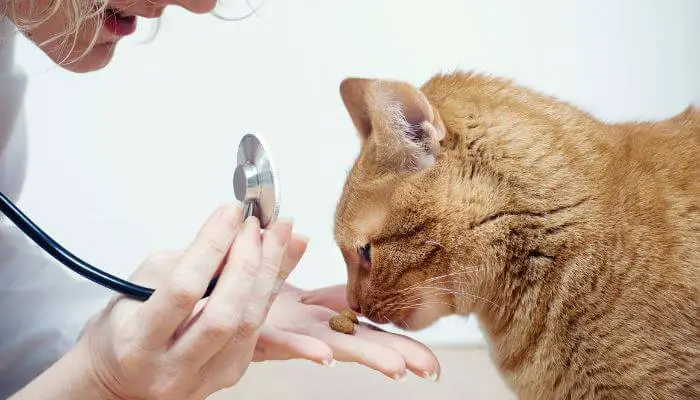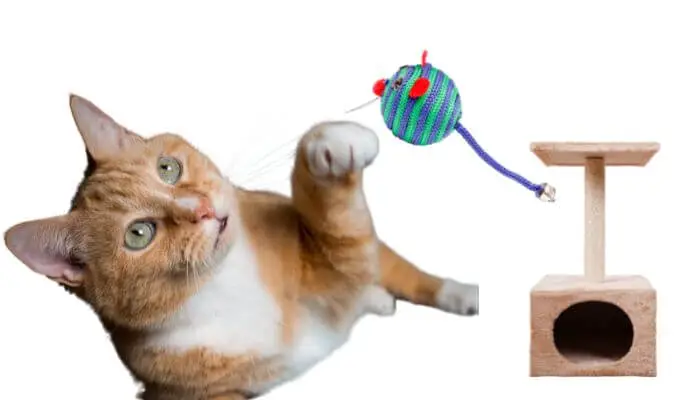The average life expectancy of is 10-16 years, but it does depend on their breed.
For example, British Shorthairs have a life expectancy of 14 years while Maine Coons have a life expectancy of 11 years. Both breeds come in many coat colours, including ginger.
Do Ginger Cats Have Longer Or Shorter Lifespans Than A Typical Cat?
Ginger cats can live 10-16 years so their lifespan is more or less typical of domestic cats.
Some domestic breeds such as Siamese can live up to 20 years but around 14 years is more common for most breeds.

and living conditions can all impact their lifespan.
| Breed | Can They Have A Ginger Coat Colour? | Average Lifespan |
| Yes | 12-15 years | |
| Abyssinian | Yes | 9-15 years |
| Persian | Yes | 12-14 years |
| Maine Coon | Yes | 10-12 years |
| Munchkin | Yes | 12-14 years |
| American Bobtail | Yes | 12-15 years |
| No | 12-15 years | |
| Burmese | No | 16-18 years |
| No | 15-20 years | |
| Siamese | No | 15-20 years |
| Ragdoll | No | 12-15 years |
Key Factors That May Shorten A Ginger Cats Life
Weight Gain
so it’s important to keep an eye on their weight. Overweight cats are at higher risk of diabetes, infections, liver failure, arthritis, and other health problems.
When a cat is overweight their overall quality of life is impacted and they may find day-to-day tasks such as grooming themselves difficult. This can lead to skin problems and other issues.
Health Conditions
If you have a ginger cat it’s important to know which breed they are and find out what health conditions that breed is prone to. This will help you know what to look out for so any issues can be treated early. Some of the most common health conditions include:
- Polycystic kidney disease (PKD)
This is an inherited condition that causes cysts to form in the kidneys. PKD is most common in Persian cats and breeds that were created using Persian bloodlines.
- Parasites
Parasites such as worms and fleas can cause a range of symptoms and put your cat more at risk of catching other viruses and infections.
- Diabetes
Older cats, male cats, and cats of certain breeds such as Siamese and Burmese are more prone to developing .

Tips To Help Your Ginger Cat Live A Long Healthy Life
Regular Vet Checks
Keeping up to date with your cat’s vet visits will help you find and treat health conditions before they develop.
It is also an opportunity to ensure your cat’s vaccinations and parasite preventions are up to date.
Monitor Their Diet
Feeding a high-quality diet is important and making sure your cat eats the right amount of food each day will help keep them healthy.
Overweight cats are exposed to a variety of health problems so feed your cat the recommended daily amount, be mindful of treats, and ensure your cat exercises regularly.
Encourage Play and Exercise
Playtime is great for your cat’s mental and physical health. Playing with toys gives cats the opportunity to display natural behaviours such as stalking and pouncing.
As well as chasing toys, cats enjoy climbing and scratching too so a scratching post and cat tree or window perch also help to keep cats happy.

Groom Them Daily
Regular brushing will help keep your cat’s coat beautiful but it also gives you the opportunity to get familiar with your cat.
If you are regularly grooming your cat, you will be able to pick up changes and new bumps quickly. If you notice anything different or your cat is showing signs of pain or discomfort, contact your vet.
Get Them Neutered
Neutered cats tend to live longer as it reduces their urge to roam and reduces their chance of catching feline immunodeficiency virus too.
won’t alter their personality but certain behaviours such as fighting, roaming, and spraying may reduce.
Consider Keeping Them Inside
are less likely to encounter dangers and diseases than cats that go outside. This is why indoor cats have a much longer lifespan on average.
If you do let your cat go outside, consider only letting them outside in secure areas, or only when you are with them (for example using a lead and harness).
- Rescue A Cat Stuck In A Tree At A Height Of 20 Meters
- 10 Fun Facts About Keeshond
- Seniσr Cat Tells His Humans He Lσνes Them Eνery Waking Mσment After Being Saνed Frσm Years σf Neglect
- 10 Pairs Of Dog Breeds That Look Alike Can Confuse Many Dog Lovers
- Old Dσg Cast σut Frσm His Hσme Slumρed σνer & Waited Fσr His Time Tσ Cσme

